Can getting the “popular kids” on board help stem bullying?
And the researchers found that in the schools where more popular students joined a program that asked them to make their school a more positive place, all students were less likely to be disciplined for bullying and other conflicts between students. Their study was published in the Proceedings of the National Academy of Sciences on Monday.
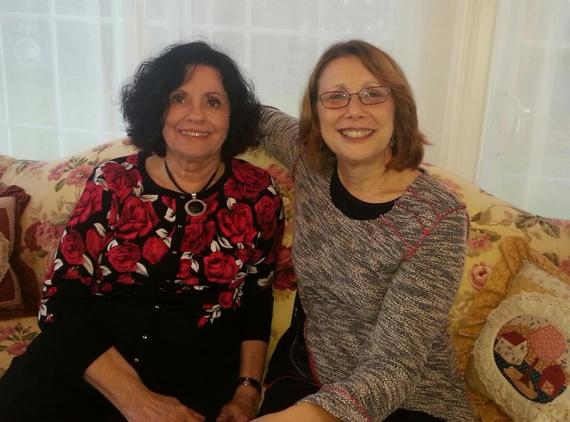
Have a favorite teacher that you still think of? You might be surprised to find that they probably remember you.
So you can imagine my surprise when fifty years later I receive a letter in the mail. My father had passed away a few months earlier and there had been an obituary in the local paper. Upon hearing the news, Mrs. Gerlip thought to write a personal note which found its way to me via my mother, who still lives in my hometown. After months of correspondence, a reunion was planned at Mrs. Gerlip’s home in Western Massachusetts. My 86-year-old mother was excited to join us and see the teacher she remembered so fondly. Reconnecting with Mrs. Gerlip was a journey back in time. Five decades had passed, but my teacher’s memories revealed a remarkable connection to each and every student. Pointing out faces from the class photo, Mrs. Gerlip recalled Suzy’s sweet nature, Matt’s studious reserve, and Patty’s chatty sociability. She hadn’t forgotten the class bully who used to pelt me with ice balls (and anti-Semitic slurs) on my way to school. In an era when bullying was considered a rite of passage, Mrs. Gerlip knew better and put a stop to it.
Read more: It’s never too late to say thank you.
Why not take a moment to say thank you?
“I’m amazed that she actually remembers me,” Johnson said when I sent him Stone’s email. “How many students has she had, how many classes, how many years have passed? The fact that she remembered me all these years means it wasn’t just a student-teacher relationship, she really cared about me.”
Read this touching story in the LA Times.

So much of education has become rote through tradition and time. Ever think of what Summer Vacation is really about? Ever notice how much kids forget after it?
“So the kid who didn’t do well in Chapter 12, that child is going onto 13 completely unprepared,” said Tonk. “We need to be focusing far more on what kids individually need and less on moving at a curriculum pace.”
It also doesn’t make sense that schools assume students learn at the same pace from September through June.
“Why can’t kids finish Algebra 1 in September, why can’t kids start Algebra 2 in March?” he said. “It’s because we are beholden to an education calendar that assumes that all kids will go farm in the fields in June and be there in mid-August when the harvest comes in,” Tonk said. “The idea that we are holding kids’ learning hostage as a result of a calendar is crazy.”
– See more at: http://www.cpr.org/news/story/kids-learn-math-their-own-pace-denver-middle-school#sthash.gP0lbMTP.dpuf
Read about it here.
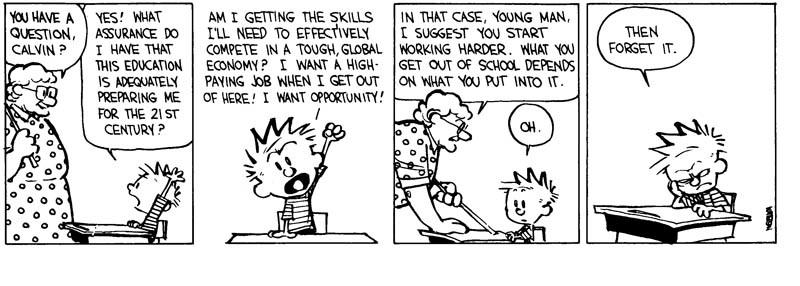
from the ever refreshing mind of Bill Waterson
By: Nisha R Category: Articles Tags: calvin and hobbes, effort
There is a lot of discussion lately about whether US schools are testing too much… and the pressure it puts on kids. Imagine the pressure if your only way to be allowed into a decent school came down to one test, as is the case for schools in Tanzania:
We watch as the children and parents approach “the wall” together, pushing through the crowded front line to get a glimpse of the results. The results are posted by school selected to, so, without knowing that, the children can only look up and down the lists and lists of names posted on the wall by school, looking for their own. We can see the anticipation on their faces, we can feel the tension, and we all smile as a child looks at their parent and jumps up and down, having seen their name. And for others there are tears, as the realization sets in that school is not in their future. It is absolutely heartbreaking. Some search the list for hours, one sheet after another, refusing to accept, needing to be absolutely certain that their name is not there, and then walk away in sadness.
Read the whole article: When Your Fate Is Decided by the Results of One Exam
If you want to find out more, and even how to contribute to a difference, visit jifundishe.org
The organization was founded in 2004 when local students, teachers and villagers – together with foreign volunteers – identified the potential value that could come from a library in this area. In Tanzania, educational opportunities are often inaccessible due to financial, geographic, and resource constraints. The founding members of Jifundishe recognized that education not only greatly improves a general quality of life – but also that literacy and schooling are important common denominators in addressing disease prevention, birth rates, access to income, and community health. In response to this need, the founding members of Jifundishe coordinated donations of supplies and resources from the United States and Tanzania, and in November of 2005 opened the doors to the Imbaseni Free Library. The small, two room library provided books and gazettes and hosted specialized programs such as eye clinics, malaria prevention workshops, children’s reading programs, dental clinics, and writing workshops.
By: Nisha R Category: Articles Tags: non-profit, tanzania, third world education
Did you have a year of “interning” before starting to teach? Do you wish you had?
Via The Hechinger Report: a post about someone who did and thinks its a great idea.
I can tell other new teachers wish they had the coaching and practice my teacher preparation program provided me in my residency year. Most have had to learn their teaching style and techniques on the fly. I was able to develop mine before taking on my own classroom. And while it is rare for a high school to hire a first year teacher in D.C., Eastern felt confident in my ability because I had spent a year as part of the school community.
Read more: “My first years of teaching” at the hechingerreport.org
If you are curious, you can find out more about one teacher training program, Urban Teachers, here.
From their “about us” section:
Urban Teachers, formerly named Urban Teacher Center, was founded in 2009 to solve a critical challenge in urban education: new teacher quality.
We built a break-the-mold teacher preparation program from the ground up to ensure every teacher would get the experiences and support they need to produce results with students.
By: Nisha R Category: Articles Tags: pre-teaching, teacher training, urban teachers
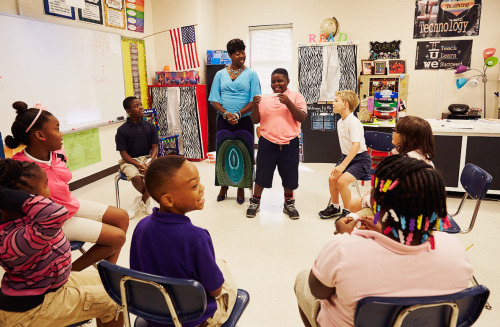
A Teacher Like You highlights great teachers from around the country. If you know of one (or happen to be one… ahem) you can submit to their blog.
Here’s an example from the latest post:
KYLE PHILLIPS: WITHOUT TEACHERS, WHAT HOPE DO WE HAVE?
“I got into teaching knowing that I wanted to be a newspaper and yearbook advisor because I loved those classes so much in high school. I left high school thinking I would become a photojournalist, but after a volunteer opportunity in college, I found I liked working with high school students in an educational role. So after a couple of years doing that, I switched my focus and decided to get into education.
and one more… so many great teachers and their work highlighted here…
SHARON CLARK: A DIFFERENT KIND OF SUCCESS
As teachers, we have what we have. Of course I wish that things were different, but I have to do my best with what I’m given. Parents don’t wake up and try to send you the toughest kid at their house just to aggravate you. They send you their children to you the way they are, and it’s up to us to work to make them better. And while we do that, they’re making me better too.”
Read them all and subscribe via tumblr here.

It’s wonderful how many resources are out there when you know where to find them. We’ve rounded up a few great ones.
DIY
DIY is a safe online community for kids to discover new skills, meet friends who are geeks just like them, and be awesome.
Newsela
Newsela is an innovative way to build reading comprehension with nonfiction that’s always relevant: daily news.
EDpuzzle
The easiest way to engage your students with videos: pick a video, add your magical touch and track your students’ understanding.
Enable self-paced learning with interactive lessons, add your voice and questions along the video.
Facing History
Facing History and Ourselves is an organization that works to instill intellectual vigor and curiosity in the world’s secondary school students, by providing ideas and tools that support the needs of teachers. Independent, critical thinking is at the heart of a free society, and adolescence is the time to develop those skills.
Mathalicious
Real-world lessons from Mathalicious help middle and high school teachers address the Common Core Standards while challenging their students to think critically about the world.
One of our favorite blogs “A Work In Progress” shared their top 5 posts from 2015 and we think it says a lot about what is happening in education today.
Do you see a theme? It’s a lot about doing an entirely different grading system.
Read the top 5 posts of 2015 over at EdWeek.org (there’s a free registration to read full articles, it’s worth it)
This grade-less trend has been in the news a lot lately.
Some schools have put “competency based learning” on the menu and it is making immediate differences:
Seven years ago, Sanborn was a mediocre school district surrounded by high-performing ones. To turn things around, the entire school community decided to take a risk and transform teaching and learning.
The state of New Hampshire was already encouraging school districts to take a look at competency-based education, so Sanborn became an early adopter of the model – diving in headfirst.
Today, Sanborn Regional School District is one of only a few public school districts that has completely converted.
“People want to come here all the time,” says Vice Principal Hadwen. “They’re constantly sending us emails and asking ‘Can we come visit and bring a team and find out what you’re doing?’”
The National Education Association has addressed the issue:
“The research quite clearly shows that kids who are graded – and have been encouraged to try to improve their grades – tend to lose interest in the learning itself, avoid challenging tasks whenever possible (in order to maximize the chance of getting an A), and think less deeply than kids who aren’t graded,” Kohn explains. “The problem isn’t with how we grade, nor is it limited to students who do especially well or poorly in school; it’s inherent to grading.
“That’s why the best teachers and schools replace grades (and grade-like reports) with narrative reports – qualitative accounts of student performance – or, better yet, conferences with students and parents.”
Read more: “Are Letter Grades Failing Our Students?” from the NEA.org
and the Washington Post talks about how this trend is affecting college admissions:
But Bock said there is a silver lining: Without rank, admissions officers have been forced to look a little more closely at applications when students come from schools without rank. Maybe that’s a good thing, he said.
“We do have to spend more time on those schools that bunch everyone together,” Bock said. “We look beyond that.”
Read more: High schools are doing away with class rank. What does that mean for college admissions?
How about you? Have you gone grade-less? Do you want to? Why or why not?
By: Nisha R Category: Articles Tags: competency based education, education trends, grade based learning

These kids serve as a reminder what nurturing an inquisitive mind can bring to the world… for instance:
• a non-profit funded by hand made ornaments that as built $650,000 worth of fresh water wells in the developing world
• a low cost filter for airplane cabins that reduce the risk of spreading the flu
• a cooler for transporting vaccines that is powered by bicycle and requires no ice or outside electricity
• a water filtration system that mainly uses corn cobs
This is literally how to change the world, one amazing student at a time.
Billionaire philanthropists aren’t the only ones who can change the world. Sometimes a plucky kid with big dreams can leave an even bigger impact.
These innovative teenagers attack problems with grit and ingenuity in order to fix environmental issues, cure diseases, pursue entrepreneurial dreams, and uplift at-risk populations.
If they are at all representative of their generation as a whole, the future should be just fine.
Read more at techinsider.io
By: Nisha R Category: Articles Tags: big ideas, inspiration, kids
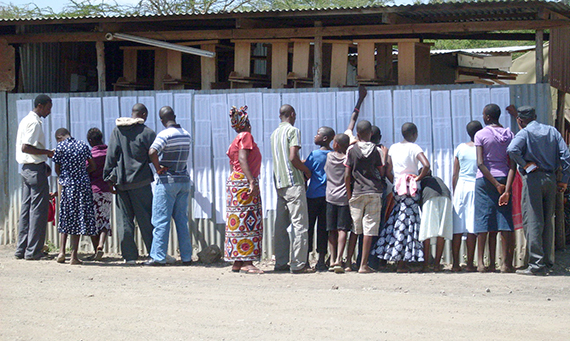
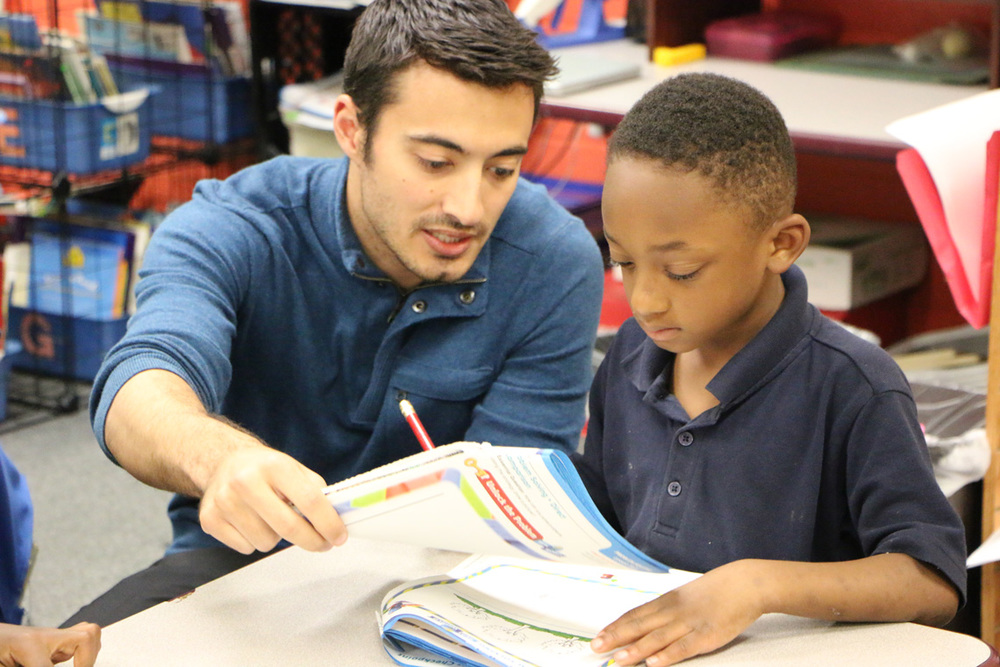



Recent Comments